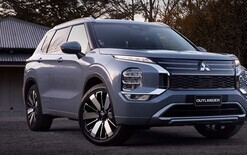EVs stalling model launches

The transition to electric vehicles (EVs) is playing a major part in delaying an increasing number of model launches, according to consulting firm PwC.
Its findings show 34 per cent of all vehicle launches in 2023 experienced production delays, compared with just five per cent in 2018.
A reason for the hold-ups in getting some new models to market on time is because of the global shift to EVs as such cars have less established designs and suppliers are struggling to keep up, reports Automotive News.
Akshay Singh, industrial and automotive industries prinicipal at PwC, says EV designs are not as mature as the older, more traditional components.
“That leads to significant late changes and that contributes to the launch issues. EV designs are evolving, and that is going to cause even more issues going forward,” he adds.
Models that have suffered delays include Tesla’s Cybertruck, which was released in November after originally being slated for a 2021 launch.
General Motors announced in October it would stall the launch of the Chevy Equinox EV, the Chevy Silverado EV RST and the GMC Sierra EV Denali, while Volvo Cars said in July production of a new electric crossover, the EX90, was being delayed.
Singh tells Automotive News that carmakers risk losing market share if they don’t introduce models on time and a delay of 12 months can cost marques up to NZ$320 million in extra costs.
PwC’s report also attributes delays in vehicle production to supply chain issues, workforce constraints and challenges around meeting quality standards and emissions rules.





